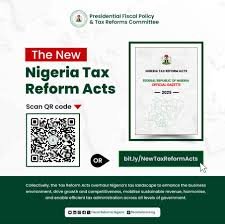Nigerians are set for major financial relief as the Federal Government moves to scrap five routine bank charges beginning January 2026. The announcement, made by Taiwo Oyedele, Chairman of the Presidential Committee on Fiscal Policy and Tax Reforms, signals one of the most impactful phases of President Bola Ahmed Tinubu’s fiscal overhaul, signed into law on June 26, 2025. The reforms are embedded in four new statutes, the Nigeria Tax Act, Nigeria Tax Administration Act, Nigeria Revenue Service Act and the Joint Revenue Board Act, which together reset the country’s tax framework.
At the centre of the changes is the removal of the ₦50 Electronic Money Transfer Levy on transfers above ₦10,000. This single charge has affected millions of daily transactions, and its abolition is expected to widen access to digital payments and lower the cost of small transfers for households and businesses.
Salary earners will also feel an immediate lift once stamp duties on salary transfers disappear. This change allows workers to receive their full pay while easing administrative pressure on employers, particularly smaller firms.
Read also:
Canadian University produces all 9 Nigerian graduands for law
OPay USSD Code *955# – Complete Guide to OPay USSD Transactions in 2025
Mobile telecom users to pay telecom providers for USSD services
Investors stand to benefit from the cancellation of stamp duties on treasury bills, bonds and share transactions. The shift is expected to lower entry costs for capital market participation and encourage more Nigerians to invest in government instruments and equities.
The government is also eliminating stamp duties on documents used in the processing of stock and share transfers, a move that simplifies paperwork in the capital market and trims compliance costs for operators. A final change removes the ₦50 charge on transfers between accounts within the same bank. Customers will be able to move funds across their accounts with no added fee, improving day-to-day cash management for many.
Oyedele explained that the new tax regime rests on provisions in the Nigeria Tax Act 2025, which sets out clear exemptions that override earlier requirements in the Stamp Duties Act and the Finance Act 2020. The reforms form part of a broader effort to reduce financial strain on citizens, boost business confidence and align Nigeria’s tax system with its long-term economic goals.






